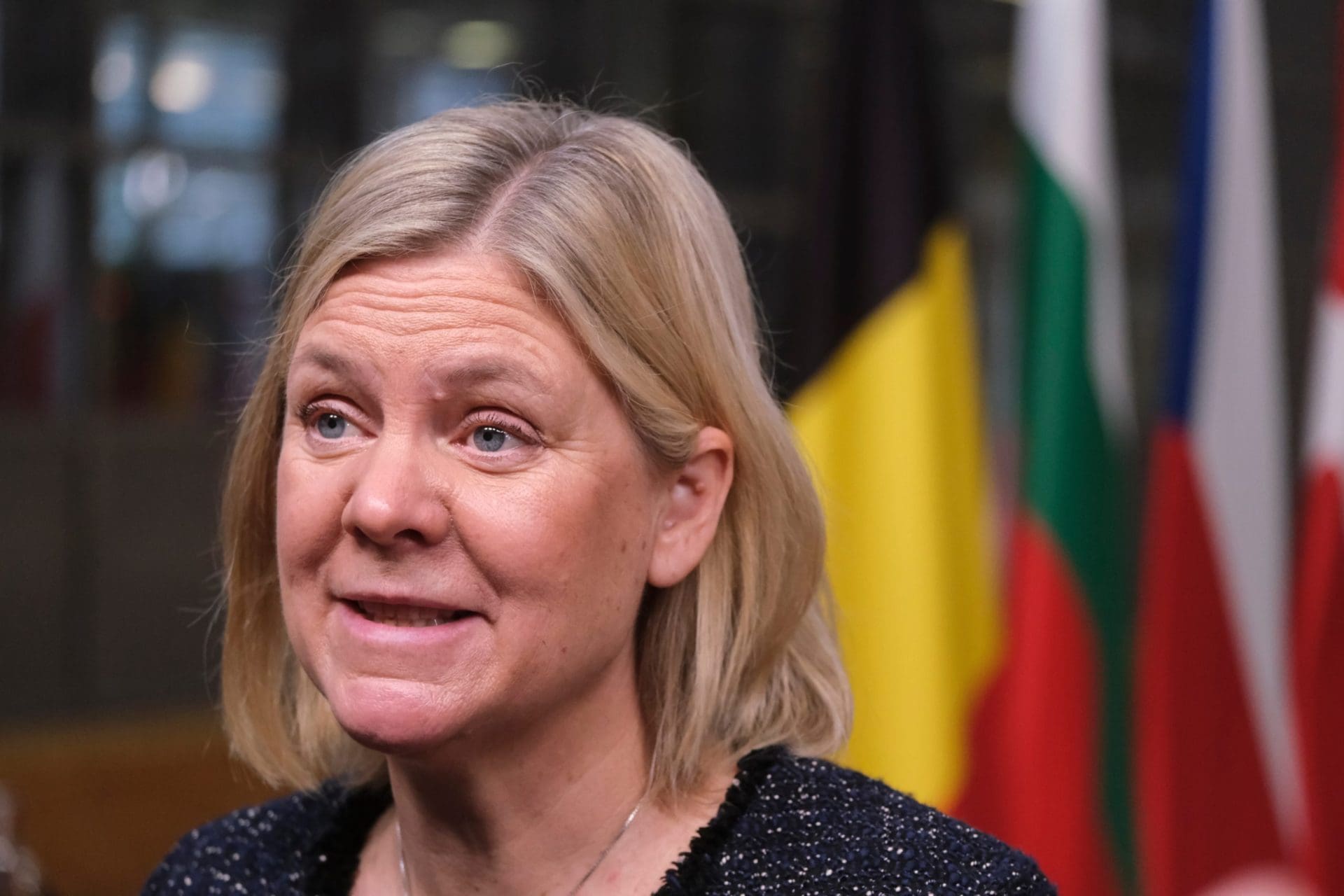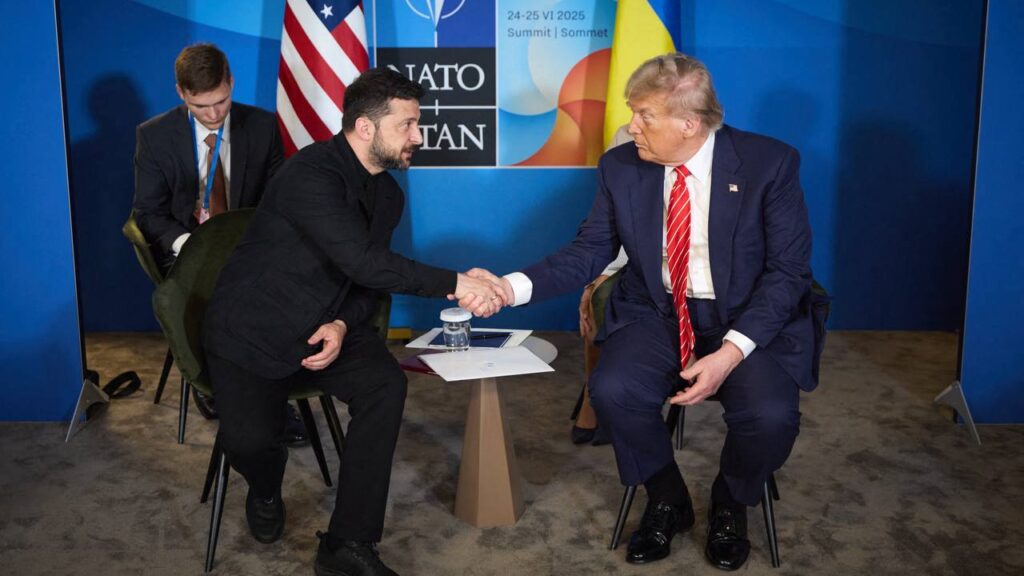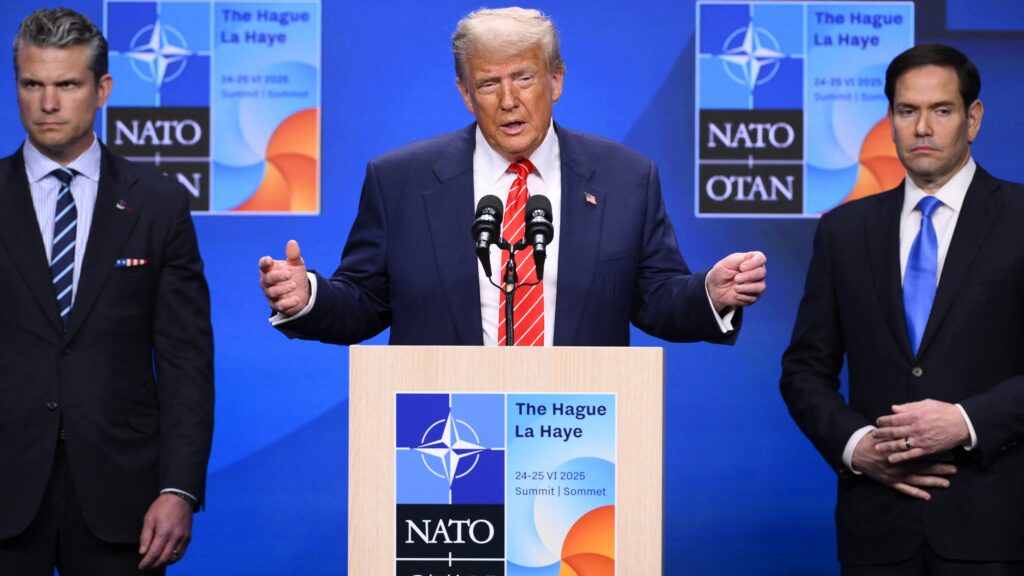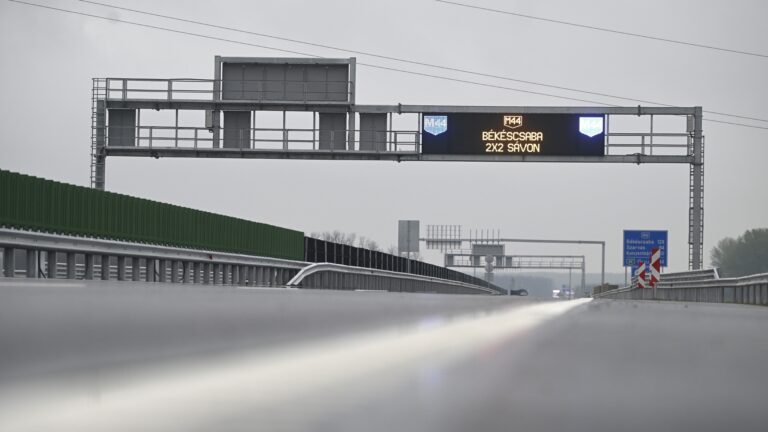As opposed to the generation of my grandparents, raised during a deadly world war, my parents grew up in a brief interlude of peace in Europe. While the idea of a permanent silence of guns on the continent was, in hindsight, an illusion, as attested, for instance, by the Yugoslav wars, the overwhelming majority of the people in Europe who reached adulthood in the nineteen nineties were lucky enough not to have to worry about an armed conflict affecting them directly.
Generation Z Europeans, like myself, are not so fortunate. We are forced to come to terms with the fact that durable peace and stability are not a given, and cannot be taken for granted. With the war in Ukraine still in full swing, a new Cold War seems to be on the horizon, or, some might argue, has already commenced, and whichever way the war ends, a new balance of power and a new status quo are almost certain to take shape.

Along with our Slovak, Polish and Romanian neighbours, we Hungarians are particularly strongly exposed to the consequences of the Russian invasion of Ukraine. Apart from the possible danger of the hostilities spilling over, even if accidentally, onto our territory, and the influx of a large number of refugees from Ukraine, the stakes are especially high for us Hungarians, as we also fear for the safety of our ethnic Hungarian brethren in Sub-Carpathia.
With the war raging on, ending every worship with a prayer and a hymn asking for peace has been standard practice in Lutheran congregations in Hungary. I am quite certain that my fellow Lutes in Finland and Sweden, two countries where Lutheranism is the dominant faith, do the same.
Nordic media broke the news of the agreement on 25 April, and things have accelerated since then
But, in good Protestant tradition, the Swedish and Finnish leaders seem to follow the maxim attributed to Oliver Cromwell: apart from (presumably) trusting in God, they want to keep their gunpowder very dry, and announced at a joint press conference in Stockholm on April 13[1] that they intend to pursue NATO membership. Only twelve days later, Finnish Prime Minister Sanna Marin and her Swedish counterpart, Magdalena Andersson agreed to submit simultaneous membership applications to NATO as early as the middle of May. Nordic media broke the news of the agreement on 25 April,[2] and things have accelerated since then. The application for what has been dubbed by the media as a joint leap into NATO may materialize either on May 12 by Finland applying first, and Sweden following lead later, or on May 17, by the two countries together, according to recent press reports.[3]
As both Sweden and Finland have a powerful military, making them, but especially Finland, rather capable of defending themselves against a single aggressor, and given their long-standing tradition of neutrality, it is obvious that the reason for the move to join the US-led alliance is heightened concerns regarding possible Russian aggression.
Let us put aside for a moment the issue of whether such concerns are indeed justified. An equally important issue that merits discussion is that both Sweden’s[4] and Finland’s[5] leaders have made it clear that no referendum will be held on NATO accession in their respective countries. The chief reasons the two Nordic countries cite for not asking the citizens opinion in a formal ballot is the confidential nature of security issues involved, as well as the fact that, especially in the case of Finland, surveys show a strong popular support of NATO membership.
The majority, albeit not an overwhelming one, indeed seem to be for accession. An opinion poll by Demoskop in daily Aftonbladet[6] published on April 20 showed 57% of Swedes in favour of joining NATO, up from 51% in March. Recent opinion polls in Finland[7] indicate that as many as 68% of Finns are in favour of joining the alliance, more than double the figure before the invasion, with only 12% against.
However, many argue that the larger, long-term repercussions of such a decision would definitely warrant a popular vote. NATO Watch, a not-for-profit, independent information service has published a briefing paper[8] on 6 May, authored by Dr. Ian Davis, looking at the pros and cons of holding a referendum on NATO membership.
According to NATO Watch, it is a valid argument that referenda could make both countries vulnerable to influence campaigns from Russia. On the other hand, it is quite concerning that both countries are willing to suspend democracy because of the risk of external influence. The briefing paper also argues that referring to the ‘confidential nature of national security issues’ as a reason for not holding a referendum reinforces ‘the false belief that security is an exclusively elitist concern.’ (In fact, similar arguments can be heard when it comes to referenda on other matters claimed to be judgeable only in possession of special expertise, or to belong to the untouchable realm of abstract human rights.)
What is more, the briefing paper notes, citing the need for secrecy as an argument against a referendum ‘also feeds into an existing democratic deficit within NATO, where the process of policy formulation—the discussions, debates, arguments, meetings, research, diplomatic back-and-forth—largely remains out of view and behind closed doors.’ NATO Watch reminds that ‘NATO is the only major intergovernmental body not to have even a basic information disclosure policy.’
Many argue that a referendum is unnecessary because there is essentially no other option but NATO accession, and expert opinion is united in suggesting that NATO membership is good for both countries, full stop. However, as the NATO Watch paper stresses, the expert views ‘largely reflect narrow interests’ while public opinion is being driven by ‘heat of the moment’ thinking. ‘A referendum would allow a period of reflection on some of the weightier and longer-term considerations that are in danger of being drowned out by the elite drumbeat towards NATO membership,’ according to Dr. Davis.
The major argument in favour of the NATO accession of Sweden and Finland is that there is an enhanced Russian threat. But is there indeed?
But what is that elite drumbeat about? The major argument in favour of the NATO accession of Sweden and Finland is that there is an enhanced Russian threat. But is there indeed? While there is the undoubted increased risk of conflict spill-over to other countries in the region, ‘the threat of a Russian attack on either Finland or Sweden has not risen significantly. In over two months of war Russia has struggled to capture cities which are only 20 miles from its border. The chances of Russia’s depleted conventional forces successfully invading Finland or Sweden, or even trying (or wanting) to invade them are remote even were there to be any incentive to do so. Yet, the motivations, politics and relationships between Russia and Finland/Sweden are incomparable to those between Russia and Ukraine,’ the briefing paper underscored. The paper, and anyone really capable of seeing the forest not only the trees, comes to the conclusion that talking up the risk Russia poses to Finland, Sweden and NATO suits the interest of the military industrial complexes in both Russia and the West, but it does not reflect the reality.’ The real Russian threats are cyberattacks, missiles and ultimately a nuclear strike, but, as NATO Watch notes, ‘NATO membership is no guarantee against them, and extended nuclear deterrence adds to rather than negates the nuclear threat. Indeed, NATO membership potentially exposes Finland and Sweden to enormous new risks, including subconventional attacks and the risk of nuclear escalation.’
Another consequence of NATO accession, which Swedish citizens might want to ponder, is that Sweden will need to massively increase its military spending in line with the NATO commitment to spend 2 per cent of GDP on defence. Sweden’s military spending in 2021 was $7.9 billion or 1.3 per cent of GDP, which it will need to increase by over 50 per cent to about $12.2 billion, the paper reminds. Finland spends 2 per cent of its GDP on the military (totalling $5.9 billion in 2021), and in December 2021 Finland announced that it would invest some $11 billion in 64 F-35 Joint Strike Fighters. ‘NATO countries collectively already outspend Russia by almost 18 to 1, yet this did not dissuade Putin’s actions in Ukraine,’ the briefing paper highlighted. Increased military spending would in turn prompt reciprocal increases in Russian and Chinese arms expenditures, as these countries perceive an increasing threat from NATO, which would set in motion a costly and dangerous global arms race in which everyone loses.

I suspect that all of the above reasoning is not common knowledge, and what little can be heard of it is drowned out by the loud voice of those who advocate for NATO membership as the only viable option.
But whether joining NATO is the right step for Sweden and Finland or not, I think that instead of moving towards less democracy in times of crisis, the opposite would be the healthier recipe. Elites and governments should rely more than ever on the will of the people when making hard decisions that will impact the lives of citizens in a myriad ways. The Swedish and the Finnish people should be given the opportunity to have a say in as to whether their countries should join a US-led military alliance and give up centuries of neutrality.
[1] Jon Henley, ‘Finland and Sweden take major step towards joining Nato,’ (13 April 2022), theguardian.com, https://www.theguardian.com/world/2022/apr/13/finland-and-sweden-could-apply-for-nato-membership-in-weeks, accessed 7 May 2022.
[2] Jon Henley, ‘Sweden and Finland agree to submit Nato applications, says report,’ (25 April 2022), theguardian.com, https://www.theguardian.com/world/2022/apr/25/sweden-and-finland-agree-to-submit-nato-applications, accessed 8 May 2022.
[3] Gerard O’Dwyer, ‘Finland and Sweden intensify talks on joint NATO application,’ (2 May 2022), defensenews.com, https://www.defensenews.com/global/europe/2022/05/01/finland-and-sweden-intensify-talks-on-joint-nato-application/, accessed 8 May 2022.
[4] Reuters, ‘Swedish PM rejects referendum on possible NATO membership,’ (28 April 2022), Reuters, https://www.reuters.com/world/europe/swedish-pm-rejects-referendum-possible-nato-membership-2022-04-28/, accessed 7 May 2022.
[5] Pekka Vanttinen, ‘Finnish president says NATO referendum no longer necessary,’ (1 April 2022), Euractiv, https://www.euractiv.com/section/politics/short_news/finnish-president-says-nato-referendum-no-longer-necessary/, accessed 6 May 2022.
[6] Reuters, ‘Growing majority of Swedes back joining NATO, opinion poll shows,’ Reuters, (20 April 2022), https://www.reuters.com/world/europe/growing-majority-swedes-back-joining-nato-opinion-poll-shows-2022-04-20/, accessed 6 May 2022.
[7] Priyanka Shankar, ‘Russia will threaten Finland after NATO application: ex-PM Stubb,’ (28 April 2022), aljazeera.com, https://www.aljazeera.com/news/2022/4/28/alexander-stubb-finland-more-nato-ready-than-current-members, accessed 6 May 2022.
[8] Ian Davis, ‘Should Finland and Sweden hold a referendum on NATO membership?’, Briefing Paper No.93, (6 May 2022), natowatch.org,https://natowatch.org/sites/default/files/2022-05/nato_watch_briefing_93_-_finland_and_sweden.pdf, accessed 8 May 2022.








